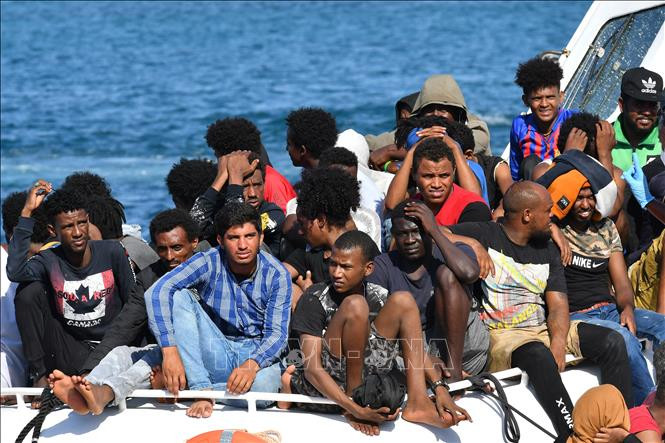Lebanon will receive a financial support package worth 1 billion euros ($1.07 billion) from the European Union (EU) for the period 2024 - 2027 to help the bloc reduce the wave of migrants from Middle Eastern countries.

Announcing the support package at a press conference in Beirut on May 2, European Commission (EC) President Ursula von der Leyen said that this measure demonstrates the EU's continued support to strengthen basic services in Lebanon such as education, social insurance and health care for the Lebanese people, along with urgent economic, financial and banking reforms.
This is a joint press conference by the President of the European Commission and the President of the Republic of Cyprus Nikos Christodoulide and the Prime Minister of Lebanon Najib Mikati as the two European leaders visit Lebanon to discuss the domestic and regional challenges facing the Middle Eastern country and how the EU can best support it. Lebanon is currently hosting a large number of Syrian refugees.
The aid will be disbursed in the form of grants, with €736 million earmarked for Lebanon to respond to the crisis in Syria and €264 million for bilateral cooperation, in particular to support security services, including border management, the EC spokesperson said.
Meanwhile, Cyprus President N. Christodoulides said the new package would help Lebanon address challenges such as monitoring land borders and combating illegal immigration. The parties would also seek to coordinate with UN partners to return migrants to their home countries.
In addition to Lebanon, the EU has agreements with Egypt, Tunisia, Mauritania and several other countries to help the continent stem the flow of illegal migrants. Since its economy collapsed in late 2019, Lebanon has become a transit point for migrants, mainly Syrians and Palestinian refugees making the dangerous journey to Europe. There are currently around 2 million Syrian migrants in Lebanon, about a third of the country’s population.
Under current EU rules, Syrian migrants are entitled to refugee protection upon arrival in the continent. Cyprus is struggling to process more than 30,000 migrants who have been granted refugee status in the country and need accommodation and monthly allowances. Cyprus is working with other EU countries to convince the EC to remove two “non-war zones” in Syria from the refugee protection list, allowing the repatriation of Syrian migrants. Most Syrian refugees arrive in Cyprus by sea, departing from Lebanon, less than 200 km southeast of Cyprus. Earlier this month, Cyprus suspended processing asylum applications from Syrian migrants following a surge in sea migration and an escalation of conflict in the region.